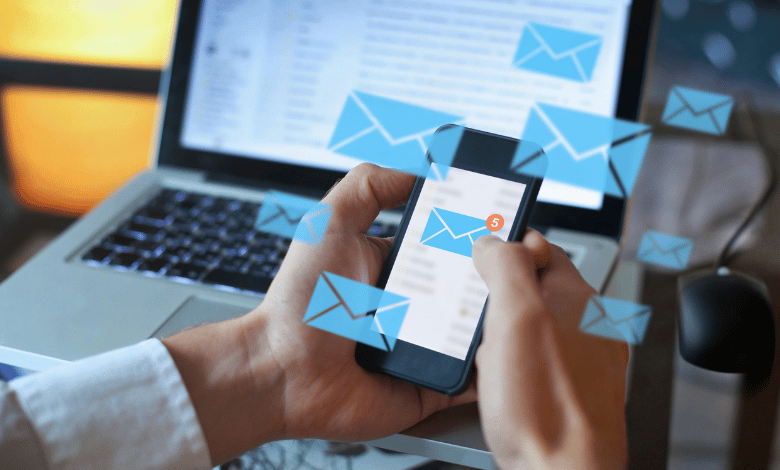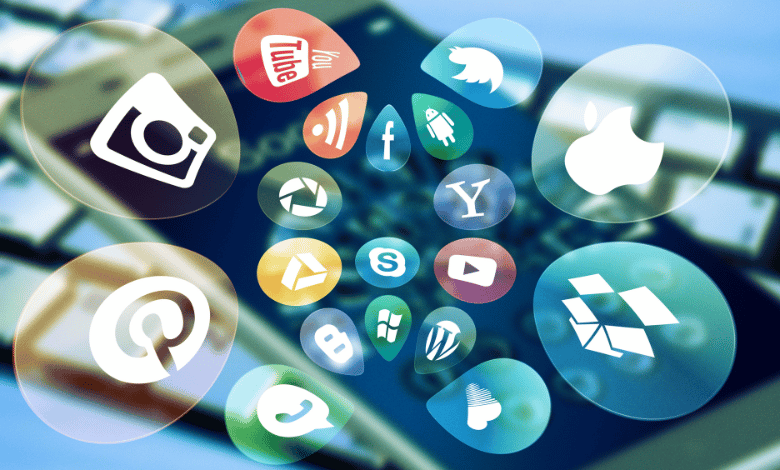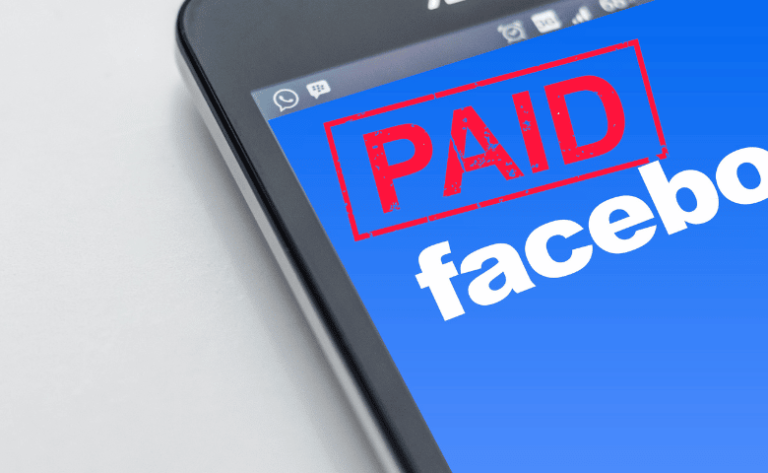Generating leads is essential for any business- no matter how big or small. Without leads, you can't possibly make any sales and without sales, your business will ultimately fail. So how do you go about generating leads? In this article, we'll explore some of the best marketing strategies to generate leads.
What Is A Lead?

- Content marketing (such as blog posts, eBooks, and webinars)
- Search engine optimization (SEO)
- Online advertising (such as display ads and pay-per-click ads).
Once you’ve generated a list of leads, it’s then up to your sales team to convert them into paying customers. While the term “lead” may seem simple enough, it’s important to understand the different types of leads and how they can impact your business. Also Read: Lead Targeting – Success Of Any Business
Types Of Leads

Information Qualified Lead (IQL)
Information qualified leads (IQLs) are people who have been identified as having a specific interest in your product or service. This can be based on their interactions with your brand, such as visiting your website or subscribing to your newsletter. IQLs represent a key step in the sales process, as they provide sales teams with high-quality leads that are more likely to convert into customers. While IQLs may require more effort to cultivate than other leads, they can ultimately result in higher sales and better ROI for your marketing campaigns. As such, identifying and targeting IQLs should be a key part of your marketing strategy.
Marketing Qualified Lead (MQL)
A Marketing Qualified Lead (MQL) is a lead that has been identified by marketing as having a higher than average chance of becoming a paying customer. MQLs are typically generated through marketing activities such as webinars, content downloads, or free trials. Once a lead has been identified as an MQL, it will be handed off to sales for further nurturing and follow-up. However, the criteria for an MQL can vary from company to company. By definition, an MQL must be more likely to convert than a standard lead, but they are not yet ready to make a purchase. The goal of marketing is to generate a steady stream of high-quality MQLs that can be passed on to sales and Eventually converted into customers.
Sales Qualified Lead (SQL)
A sales-qualified lead (SQL) is a prospect that has been vetted by the sales team and is determined to be ready for purchase. SQLs are typically generated through marketing initiatives, such as webinars, gated content, or demo requests. Once a lead has been identified as a potential customer, the sales team will work to further qualify the lead by assessing their budget, authority, need, and timeline (BANT). If the lead meets all of the criteria, it will be marked as an SQL and handed off to the sales team for further nurturing and eventually closing. As a result, generating quality SQLs should be a top priority for any organization looking to increase sales.
Understanding Buyer's Journey
The buyer’s journey is the process that buyers go through when making a purchase. It’s important to understand this journey so you know what type of content and offers to provide at each stage in order to move the buyer closer to a purchase. The buyer’s journey has three stages:
- Awareness
- Consideration
- Decision
Awareness Stage
The awareness stage is when the buyer becomes aware of their problem or need. They will start to do research on possible solutions and begin to educate themselves on the options available. At this stage, buyers are not ready to purchase, but they are starting to narrow down their options. It’s important to provide educational content that will help the buyer understand their problem and the possible solutions. This content should not be too sales-y, but rather provide value and help the buyer move to the next stage in their journey.
Consideration Stage
The consideration stage is when the buyer has a good understanding of their problem and is now evaluating the different options available to them. At this stage, it’s important to provide content that will help the buyer understand your product or service and how it can solve their problem. You should also provide case studies, testimonials, and free trials to help the buyer make their decision. It’s also important to remember that buyers at this stage are still not ready to purchase, so don’t be too pushy with your sales pitch.
Decision Stage
The decision stage is when the buyer has decided on a solution and is now ready to purchase. At this stage, you should provide content that will help the buyer understand the features and benefits of your product or service. You should also provide pricing information and any special offers that you may have. It’s important to remember that buyers at this stage are ready to purchase, so you can be more direct with your sales pitch. By providing value at each stage, you will be able to move buyers through the funnel and increase the likelihood of converting them into customers.
What Is Lead Generation?
Lead generation is the process of generating leads, or potential customers, for your business. There are a number of different ways to generate leads, including content marketing, social media marketing, search engine optimization, and paid advertising. It’s important to note that not all leads are created equal. Some leads may be more qualified than others, which is why it’s important to have a clear understanding of your target customer before you start generating leads. Once you have a good understanding of your target customer, you can start to generate leads by creating targeted content and offers that will appeal to them.
Marketing Strategies To Generate Leads
There are a number of different marketing strategies that you can use to generate leads. It’s important to note that not all strategies will work for all businesses. Experiment with different strategies and see what works best for your business. Here are some of the most effective marketing strategies to generate leads:
Content Marketing
Content marketing is a strategic marketing approach focused on creating and sharing valuable, relevant, and consistent content to attract and retain a clearly defined audience — and, ultimately, to drive profitable customer action. The first step in any content marketing strategy is understanding your audience. Once you know who your target audience is, you can begin developing content that appeals to their needs, interests, and pain points. Once you have a clear understanding of your audience, you can start creating engaging content that will resonate with them. There are a number of different types of content you can create, including:
- Blog posts
- Ebooks
- Infographics
- Webinars
No matter what type of content you create, it’s important that it be original and interesting. If your content is dull or rehashed, your audience will quickly lose interest. Additionally, your content should be published regularly in order to keep your audience engaged. If you only post sporadically, they’re likely to forget about you entirely. Once you have a solid content marketing strategy in place, make sure to measure your results so that you can fine-tune your approach as needed. By understanding what’s working and what isn’t, you can continuously improve the effectiveness of your content marketing efforts. Also Read: Live Stream Marketing and its Benefits for Small Business
Email Marketing
Email marketing is a digital marketing technique that uses email to promote commercial messages. Typically, email marketing is used to build:
- Brand awareness
- Generate leads
- Foster customer loyalty
Email marketing campaigns can be triggered based on customer behavior, such as when a customer makes a purchase, abandons a shopping cart, or subscribes to a newsletter. Additionally, It can also be used to deliver promotional content, such as coupons, product updates, or event invitations. Email marketing is an effective way to reach a large audience at a low cost. It can be customized to target specific customers and deliver relevant messages.
Engage Visitors With Live Chat
There's no doubt that live chat is one of the most effective ways to engage visitors on your website. By offering real-time assistance and chatting with visitors in a friendly and personal way, you can quickly build trust and relationships. And when you have a good relationship with your visitors, they're more likely to do business with you. In fact, statistics have shown that live chat can help to increase conversion rates by as much as 20%. But did you know that live chat can also be used to generate leads? That's right – by engaging in conversations with visitors and collecting their contact information, you can turn them into hot leads that you can follow up with later. For example, you can use live chat to:
- Collect visitor contact information: By asking for a visitor's name and email address, you can add them to your mailing list or contact them later.
- Schedule appointments: If you offer services that require appointments, you can use live chat to schedule these appointments directly with your visitors.
- Answer questions: Use live chat to answer any questions that your visitors may have about your products or services. This way, they'll be more likely to buy from you.
So if you're not using live chat on your website yet, now is the time to start! It's an incredibly effective way to engage visitors and generate leads.
Search Engine Optimization (SEO)
Credibility is one of the most important aspects of any business. People are more likely to trust a company that appears on the first page of Google than one that doesn’t. This is because people perceive companies that rank highly on search engines as being more credible and authoritative. And when people trust your company, they’re more likely to do business with you. That’s where SEO comes in. SEO is the process of optimizing your website for Google’s search algorithm. By making your site more visible and relevant to Google, you’ll increase your chances of ranking highly for relevant keywords. And when you rank highly for relevant keywords, you’ll generate more traffic to your website. This increased traffic will lead to more leads and, ultimately, more sales. So if you’re looking to generate more leads for your business, investing in SEO is a wise decision. Also Read: How To Search For Keywords – Like A Pro
Social Media Marketing (SMM)
There's no doubt that social media can be a great way to generate leads for your business. By building relationships with potential customers and creating valuable content, you can attract a highly-targeted audience that is more likely to do business with you. But what are the best ways to use social media for lead generation? Here are a few tips:
1. Use Social Media Ads
Social media platforms like Facebook, Twitter, and LinkedIn offer highly effective advertising opportunities that allow you to target your ideal customer base with laser precision. By running ads on these platforms, you can quickly and easily generate leads that are more likely to convert into customers.
2. Publish Helpful Content
One of the best ways to attract potential customers to your business is by publishing helpful and informative content that solves their problems. If you can establish yourself as an expert in your industry, you'll be more likely to generate leads and convert them into customers.
3. Participate In Relevant Online Communities
Another great way to generate leads is by participating in relevant online communities where your target market hangs out. By adding value to these discussions, you can build relationships with potential customers and get them interested in doing business with you. Also Read: Benefit Of Social Media – Business Owners This Is For You
Pay Per Click (PPC) Ads
PPC stands for pay-per-click, a model of internet marketing in which advertisers spend money on advertising only when their ad is clicked. The most popular form of PPC is search advertising, in which ads are shown to users who are searching for certain keywords. PPC ads can be an effective way to generate leads because they allow you to target potential customers who are already interested in your product or service. When designing a PPC campaign, it is important to choose the right keywords and create relevant, targeted ads. It is also important to track your results so that you can optimize your campaign and ensure that you are getting a positive return on investment. With a well-designed PPC campaign, you can quickly generate leads and grow your business.
Design Your Landing Page Clear & User-Friendly
A well-designed landing page can be the difference between a website that generates leads and one that doesn't. The goal of a landing page is to provide a clear and concise message that persuades a visitor to take action. This means that the design of the page must be focused on conversion, with a strong call to action (CTA) that is impossible to miss. In addition, the landing page should be free of distractions, such as nav bars and sidebars, that could prevent a visitor from taking the desired action. By following these principles, you can ensure that your landing page is effective in generating leads and converting visitors into customers.
Using AI And Automations
Automation and artificial intelligence (AI) are two of the most popular terms in the business world today. But what do they mean? And how can they help you generate leads? Here's a quick rundown: Automation is the use of technology to automate tasks that would traditionally be done by human beings. For example, you can now use software to automatically send follow-up emails to customers after they've made a purchase, or to schedule social media posts in advance. AI, on the other hand, is the use of computer algorithms to simulate human intelligence. This can be used for tasks like lead generation and customer segmentation. For example, you can use AI to automatically identify potential customers who are most likely to be interested in your product or service.
So how can automation and AI help you generate leads?
Well, by automating repetitive and time-consuming tasks, you'll free up more time to focus on generating new leads. And by using AI to segment your audience and target potential customers, you'll be able to generate high-quality leads that are more likely to convert into customers. So if you're looking for ways to improve your lead generation process, consider implementing automation and AI.
Why Not Just Buy Leads?
Generating leads takes time, effort, and money. So why not just buy leads from a lead generation company? There are a few reasons why this is not always a good idea. First of all, when you buy leads, you have no control over the quality of those leads. The leads may not be a good fit for your product or service, or they may not be interested in what you're selling. Secondly, when you buy leads, you're not building a relationship with the potential customer. Instead, you're just buying their contact information. When you buy leads, you're not building your brand. Instead, you're relying on the lead generation company to build your brand for you. So while buying leads may be tempting, it's important to remember that it's not always the best option.
How To Gauge Lead Interest?
If you’re in digital marketing, then you know that one of the most important things is gauging a lead’s level of interest. After all, there’s no point in spending time and resources on a lead who’s not interested in what you have to offer. So how can you tell if a lead is interested? There are a few key indicators that you can look for: First, see if the lead has visited your website multiple times. This shows that they’re at least somewhat interested in what you have to offer. Second, check to see if the lead has engaged with your brand on social media. If they’ve liked or shared your content, this is a good sign that they’re interested in what you have to say. Finally, take a look at the lead’s interaction with your sales team. If they’ve been responding positively to calls and emails, this is another strong indication of interest. By keeping an eye on these key indicators, you can get a good sense of how interested a lead is and whether or not they’re worth pursuing.
Conclusion
So there you have it, 8 Marketing Strategies To Generate Leads In 2024! While some may be more effective for your business than others, all of them are worth trying out. How many of these strategies have you tried? What were the results? Let us know in the comments below!







